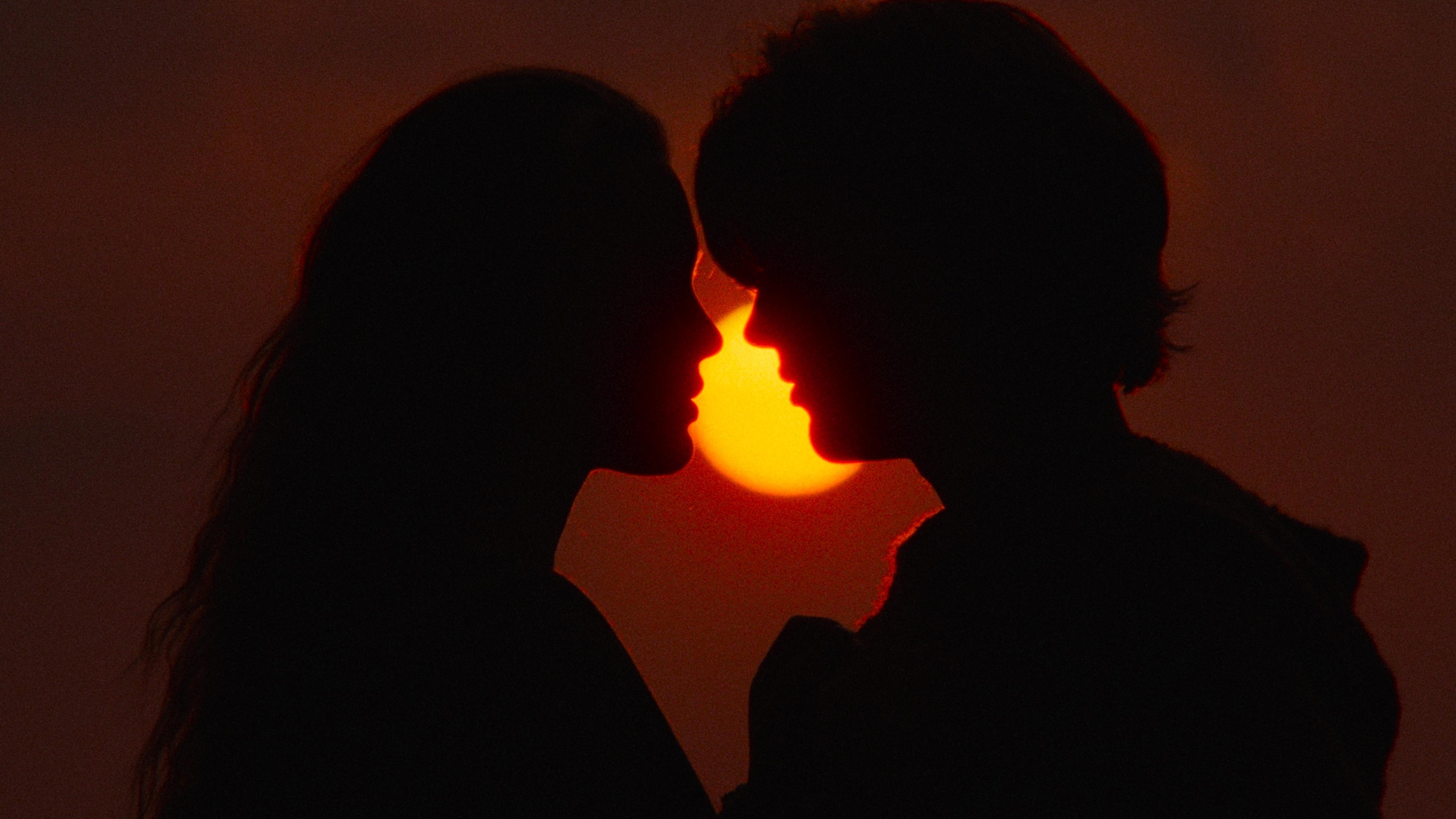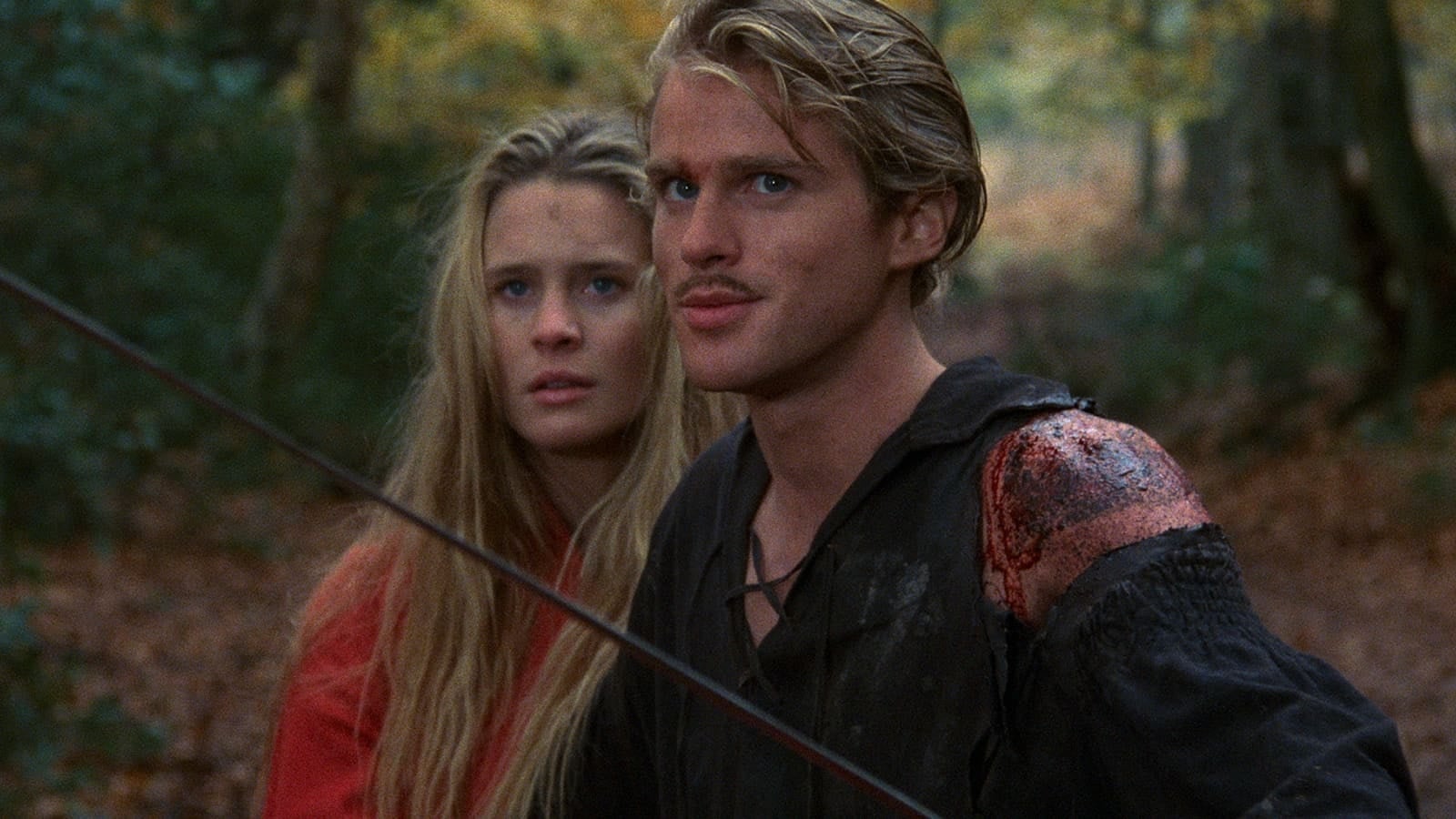
In honour of today being my Mum’s 58th Birthday, I thought I would talk about one of her all time favourite films. The film permeated my entire childhood – one of our cats was even named Wes, naturally short for Westley, and while I was too young to remember most of the names of the other nine we had at the time, I’m pretty sure there was a Vizzini in their somewhere (as inconceivable as the whole thing might sound. Nowadays, we’ve made it a tradition to see it at the cinema whenever it’s been on, and as luck would have it, it’s on tonight of all nights. So, allow me to just gush about a film that has always had a place in my heart – at least for a few hundred words or so.
Fred Savage plays a child who’s been at home with a fever. He’s hasn’t quite recovered, but he’s well enough to play Hardball (1985), and he plans to make a whole day of it. That is, until his grandpa, played by Columbo’s Peter Falk, comes in to surprise him with a gift: a decrepit and leather-bound romance novel. The old man soon begins reading the story, but his grandson is immediately turned off by all the schmaltz. A peasant stablehand named Westley (Cary Ewels) and the Princess Buttercup (Robin Wright) fall in love. Westley decides to leave for the high seas in search of riches and parting tragically, the lovers seal their passion with a kiss. It’s enough to make the grandson ill again, but when his grandfather tells him of Westley’s death and the hands of Dread Pirate Roberts and Buttercup’s kidnapping by the short-tempered and shrewd Vizzini (Wallace Shawn) and his band of goons, the boy is hooked.
The greatest thing about The Princess Bride is it’s ability to straddle the line between parody and earnestness. It may have a cast of comedic actors, six fingered men and rodents of unusual size, but the expertly choreographed swordplay, characters with deeper motivations and backstories, and moments of genuine suspense – like Buttercup and Westley sinking in quicksand in the Fire Swamp – suggest a grander fairytale. The parody elements then become the grandfather’s flourishes as an unreliable narrator. As he skims a page here and skips a page there, the story no longer becomes about “twue lahv” but the power of stories themselves, and the loved ones who help create our wildest dreams. The everyday storytellers who orate their own abridged tales for our benefit, the ones who craft the memories we’ll never forget.
William Goldman, the screenwriter and author of the original novel, was having special difficulty outlining Westley’s lowest moment, him being strapped to the Torture Machine, and didn’t quite know how to get him out of it. He was racking his brain trying to come up with a solution, until unconsciously, he wrote down two words:
“Westley dies.”
Seeing those words, so concrete on the page, made him cry. Like a grieving parent, Goldman could longer live in denial about what was to happen to Westley. He may have found a way to revive Westley later on, but in that moment, like Savage’s grandson, he was left distraught at the unfairness of it all.
Yet, Prince Humperdinck’s casual remarks prior about needing to miss the whole affair add a deliciously evil layer to the whole thing that’s hard not to laugh at:
“Tyrone, you know how much I love watching you work, but I’ve got my country’s 500th anniversary to plan, my wedding to arrange, my wife to murder and Gilda to frame for it. I’m swamped.”
But it’s also delivered with such coolness by Chris Sarandon that it’s unnerving at the same time. The film arguably has as much staying power as it does because it loves the genre of medieval romance almost as much as it has fun laughing at its many, many tropes.
In era where everything needs to be lampshaded or dripping in irony for people to be comfortable laughing at it, The Princess Bride brings comedy back to a place of love and wonder and one that takes no joy in cruelly mocking its characters. Inigo Montoya for example, may be casually ribbed for his repeated practicing of how he will introduce himself to his father’s killer, but by the end, the words, “Hello. My name is Inigo Montoya. You killed my father. Prepare to die!” Becomes the battle cry of a man fighting through death to enact his greatest purpose.
In a fitting twist for the film’s production, Director Rob Reiner was given a copy of Goldman’s novel by his father when he was growing up. In a sense, the creation of the film is a love story in itself. Rob’s love for the material, and Goldman’s love for the story that brought his daughters so much joy, brought the two artists in a way neither expected. With the 1973 screenplay being shopped around as the stuff of legends (with names like Truffeau or Robert Redford previously attached to direct), the young “upstart” Reiner was the only one who was able to understand Goldman’s vision.
…But that’s a whole other story, and I can tell you seem annoyed. You want me to stop? Yes? As you wish.
